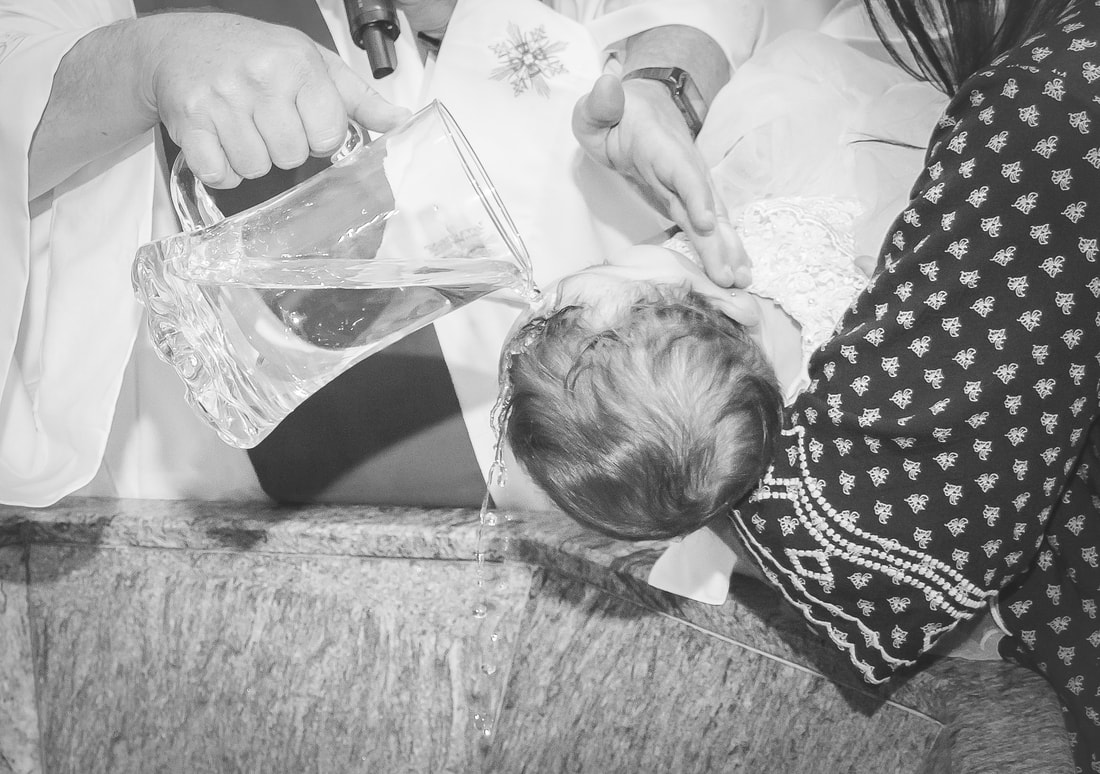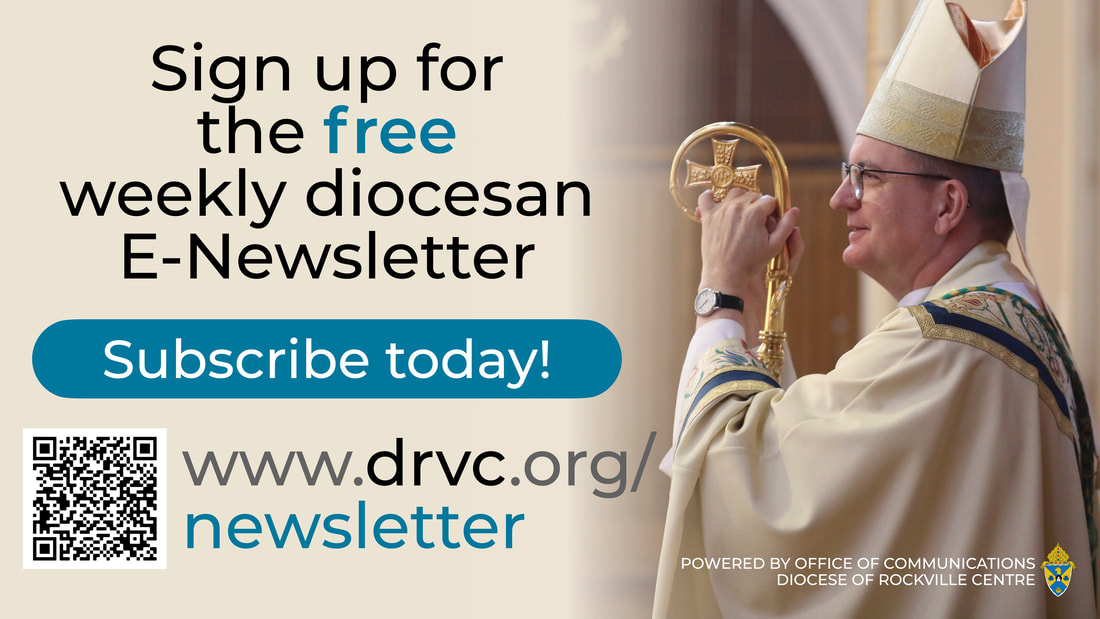Through Baptism the Christian is sacramentally assimilated to Jesus, who in his own baptism anticipates his death and resurrection. The Christian must enter into this mystery of humble self-abasement and repentance, go down into the water with Jesus in order to rise with him, be reborn of water and the Spirit so as to become the Father's beloved son in the Son and "walk in newness of life." - Catechism of the Catholic Church 537
Infant BaptismJesus was baptized and taught his Apostles to do likewise. Through Baptism we are freed from sin and reborn as sons and daughters of God. We become members of the Body of Christ as we are incorporated into the Church and made sharers in her mission. We can’t wait to welcome your child into the life of Christ and our Church through Baptism.
St. Gertrude's offers Baptisms on the third Sunday of each month at 1:00 PM. Prior parent interview with a baptismal coordinator is required. Please call the rectory for details regarding procedure, dates and pre-Baptismal classes (516)628-1113. |
Godparents
Godparents, please read the following and go to drvc.org/the-chancery/sponsors-and-godparents.html
The role of the godparent for baptism is rooted in the role of the sponsor in the catechumenate, which originated in the early Church. Recall that until the year 313, the Church was under the persecution of the Roman Empire and had to be cautious in conducting its affairs so as to prevent pagan infiltration and persecution. Also, until the Middle Ages, the Sacraments of Initiation– Baptism, Holy Eucharist, and Confirmation– were administered at once. The role of the sponsor then was to attest to the integrity of the person, oftentimes an adult, seeking admission into the Church as well as to assist him during the catechumenate in preparing for these sacraments and in living a Christian life. For infants, these sponsors would also make the Profession of Faith in the child’s name, and accept the responsibility of instructing the child in the faith, especially if the parents failed in this duty. About the year 800 when infant baptism was truly the norm, these sponsors were called “patrinus,” or “godfather.” Traditionally, we identify the sponsor of a child for baptism as the godparent– godmother or godfather, but the technical term remains “sponsor.
According to the Code of Canon Law, “Insofar as possible, one to be baptized is to be given a sponsor who is to assist an adult in Christian initiation, or, together with the parents, to present an infant at the baptism, and who will help the baptized to lead a Christian life in harmony with baptism, and to fulfill faithfully the obligations connected with it” (#872). This statement clearly reflects the historical roots of the role of sponsor.
To be a godparent, a person must be chosen by the person to be baptized, or by the parents or guardians of a child, or, in their absence, by the pastor or minister of the sacrament. The godparent must not only have the intention of being a godparent but also meet proper qualifications. He or she must be a Catholic who has received the Sacraments of Holy Eucharist and Confirmation, and “leads a life in harmony with the faith and the role to be undertaken.” Moreover, the godparent cannot be impeded by some canonical penalty. Note that the mother and father of the child cannot serve as sponsors. Also note that these are the same requirements for Confirmation sponsors. (Cf. Code of Canon Law, #874.1).
Strictly speaking, a person only needs one godparent for Baptism– male or female, but may have two sponsors, one male and one female. Here the Code of Canon Law wants to eliminate the practice of having numerous sponsors, as has occurred in some cultures (#873). Also, in the case of an emergency, such as imminent death, no godparent is needed.
Here we should pause to clarify who qualifies as a Catholic godparent. A Catholic who does not practice the faith by regularly attending Mass or who is in an invalid marriage disqualifies himself or herself from being a godparent. Moreover, if a person is Catholic but antagonistic to the faith, i.e. has the attitude “I am a Catholic but…,” and would not be a good example and witness to the faith also disqualifies himself or herself. If a person is not striving to fulfill his own obligations of Baptism and Confirmation, he will not fulfill the responsibilities of helping another to do so.
As a pastor, I am truly perturbed each time someone comes by the rectory office and wants me to sign a sponsor’s certificate and attest that he/she is a practicing Catholic when I do not recognize him/she, he/she has not registered in the parish, and he/she does not attend Mass faithfully. In justice, I cannot meet such a request.
Parents need to find good practicing Catholics for godparents. Sadly, this task can be very difficult in today’s world. The best place is to look for relatives, even grandparents, who have a blood relationship with the godchild and have kept the faith over the years. Good friends are also appropriate, but sometimes friendships wane, leaving the godchild without an active godparent. Godparents should be faithful individuals who are ready to accept the responsibility of being a part of a godchild’s life for the rest of his life.
What if someone would like to have a faithful Protestant friend as a sponsor? Technically, only Catholics can be godparents. A Christian of another denomination, whether Orthodox or Protestant, however, may be a “Christian witness” to the baptism along with the Catholic godparent. The reason for this distinction and restriction is that the godparent not only is taking responsibility for the religious education and spiritual formation of the baptized person, but also is representing the Church, the community of faith, into which the person is being baptized. A Christian who is not Catholic, although perhaps a very holy Christian, cannot fully attest to the beliefs of the Catholic Church. Likewise, a Catholic can only be a Christian witness for someone who is baptized into another Christian denomination. (Vatican II, Decree on Ecumenism, #57.)
In all, godparents serve a special role in the life of the baptized person. Therefore, each parent should choose a godparent not just because of a blood relationship or friendship; rather, a godparent should be a trustworthy witness of the faith who will help the godchild attain salvation.
The role of the godparent for baptism is rooted in the role of the sponsor in the catechumenate, which originated in the early Church. Recall that until the year 313, the Church was under the persecution of the Roman Empire and had to be cautious in conducting its affairs so as to prevent pagan infiltration and persecution. Also, until the Middle Ages, the Sacraments of Initiation– Baptism, Holy Eucharist, and Confirmation– were administered at once. The role of the sponsor then was to attest to the integrity of the person, oftentimes an adult, seeking admission into the Church as well as to assist him during the catechumenate in preparing for these sacraments and in living a Christian life. For infants, these sponsors would also make the Profession of Faith in the child’s name, and accept the responsibility of instructing the child in the faith, especially if the parents failed in this duty. About the year 800 when infant baptism was truly the norm, these sponsors were called “patrinus,” or “godfather.” Traditionally, we identify the sponsor of a child for baptism as the godparent– godmother or godfather, but the technical term remains “sponsor.
According to the Code of Canon Law, “Insofar as possible, one to be baptized is to be given a sponsor who is to assist an adult in Christian initiation, or, together with the parents, to present an infant at the baptism, and who will help the baptized to lead a Christian life in harmony with baptism, and to fulfill faithfully the obligations connected with it” (#872). This statement clearly reflects the historical roots of the role of sponsor.
To be a godparent, a person must be chosen by the person to be baptized, or by the parents or guardians of a child, or, in their absence, by the pastor or minister of the sacrament. The godparent must not only have the intention of being a godparent but also meet proper qualifications. He or she must be a Catholic who has received the Sacraments of Holy Eucharist and Confirmation, and “leads a life in harmony with the faith and the role to be undertaken.” Moreover, the godparent cannot be impeded by some canonical penalty. Note that the mother and father of the child cannot serve as sponsors. Also note that these are the same requirements for Confirmation sponsors. (Cf. Code of Canon Law, #874.1).
Strictly speaking, a person only needs one godparent for Baptism– male or female, but may have two sponsors, one male and one female. Here the Code of Canon Law wants to eliminate the practice of having numerous sponsors, as has occurred in some cultures (#873). Also, in the case of an emergency, such as imminent death, no godparent is needed.
Here we should pause to clarify who qualifies as a Catholic godparent. A Catholic who does not practice the faith by regularly attending Mass or who is in an invalid marriage disqualifies himself or herself from being a godparent. Moreover, if a person is Catholic but antagonistic to the faith, i.e. has the attitude “I am a Catholic but…,” and would not be a good example and witness to the faith also disqualifies himself or herself. If a person is not striving to fulfill his own obligations of Baptism and Confirmation, he will not fulfill the responsibilities of helping another to do so.
As a pastor, I am truly perturbed each time someone comes by the rectory office and wants me to sign a sponsor’s certificate and attest that he/she is a practicing Catholic when I do not recognize him/she, he/she has not registered in the parish, and he/she does not attend Mass faithfully. In justice, I cannot meet such a request.
Parents need to find good practicing Catholics for godparents. Sadly, this task can be very difficult in today’s world. The best place is to look for relatives, even grandparents, who have a blood relationship with the godchild and have kept the faith over the years. Good friends are also appropriate, but sometimes friendships wane, leaving the godchild without an active godparent. Godparents should be faithful individuals who are ready to accept the responsibility of being a part of a godchild’s life for the rest of his life.
What if someone would like to have a faithful Protestant friend as a sponsor? Technically, only Catholics can be godparents. A Christian of another denomination, whether Orthodox or Protestant, however, may be a “Christian witness” to the baptism along with the Catholic godparent. The reason for this distinction and restriction is that the godparent not only is taking responsibility for the religious education and spiritual formation of the baptized person, but also is representing the Church, the community of faith, into which the person is being baptized. A Christian who is not Catholic, although perhaps a very holy Christian, cannot fully attest to the beliefs of the Catholic Church. Likewise, a Catholic can only be a Christian witness for someone who is baptized into another Christian denomination. (Vatican II, Decree on Ecumenism, #57.)
In all, godparents serve a special role in the life of the baptized person. Therefore, each parent should choose a godparent not just because of a blood relationship or friendship; rather, a godparent should be a trustworthy witness of the faith who will help the godchild attain salvation.
"Go, therefore, and make disciples of all nations, baptizing them in the name of the Father, and of the Son, and of the Holy Spirit."
- MATTHEW 28:19
Becoming Catholic
If you’re an adult seeking Baptism or thinking about becoming Christian, your next step is enrolling in our Adult Formation program (RCIA).



